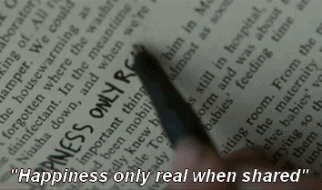Here?s a poem that we can all connect with in current times: it explores feelings of emptiness and loneliness, as well as the fear but also positive experiences that can come from being placed into a state of isolation. Frost?s poem is delicately balanced between positivity and negativity, connecting the inner landscape of the mind?s psychology to the outer passive and as yet unexplored territories in the wider world.
Thanks for reading! If you find this resource useful, you can take a look at our full Frost poetry courses here (CCEA coming soon!): https://scrbbly.teachable.com/p/robert-frost-poetry
 Photo by guille pozzi on Unsplash
Photo by guille pozzi on Unsplash
DESERT PLACES
Snow falling and night falling fast, oh, fast
In a field I looked into going past,
And the ground almost covered smooth in snow,
But a few weeds and stubble showing last.
.
The woods around it have it–it is theirs.
All animals are smothered in their lairs.
I am too absent-spirited to count;
The loneliness includes me unawares.
.
And lonely as it is that loneliness
Will be more lonely ere it will be less–
A blanker whiteness of benighted snow
With no expression, nothing to express.
.
They cannot scare me with their empty spaces
Between stars–on stars where no human race is.
I have it in me so much nearer home
To scare myself with my own desert places.
VOCABULARY
Stubble – spiky growth, in this case the tips of grass
Smothered – covered over thickly with something, in some senses a positive word that connotes protection, as if the snow is a blanket, but alternatively it could suggest suppression, choking to stifling
Lair – the hiding place and dwelling of a creature or monster
Absent-spirited – an unusual phrase which Frost seems to have invented for this poem. It references the common phrase ?absent-minded?, which means to have one?s mind elsewhere and not focused on the task at hand. In this sense, we could interpret ?absent-spirited? to mean something similar, that the speaker?s spirit is elsewhere – his heart and soul aren?t quite present in the moment he?s experiencing.
Unawares – not aware of something
Ere – before
Benighted – covered in night / darkness
Desert places – this image conjures up the dry, barren desert but also a more spiritual emptiness, spaces in the soul or mind which are deserted – where nothing grows or progresses
STORY / SUMMARY
Stanzas 1-2: Snow is falling fast, the speaker watches it filling up the field as he passes, he observes that it has almost – but not quite – covered up the grass and plants, only a few tips of the plants remain visible. The snow belongs to the surrounding woods, and he imagines the animals that are hibernating in their nests and burrows, asleep under the covering of snow. He is not like them, he is too ?absent-spirited?, and the fact that he?s not partaking in the laws of nature in wintertime makes him feel lonely.
Stanzas 3-4: He muses further on this loneliness, it?s only the beginning of winter and so he knows over the next season he will start to feel more alone before it gets better (before Spring comes and the animals awaken). He imagines that soon everything will be covered fully in snow, a blankness that?s devoid of any expression of life. He says the vast blankness of parts of nature are not frightening or intimidating to him – he is not scared by the blankness of the snow, nor by the dark gaps between stars in the sky. He is used to loneliness and blankness, it lies within him, within his own mind and soul – his own ?desert places?.
SPEAKER / VOICE
The speaker is an unnamed, solitary traveller who is alone in a vast, white landscape – even other living entities, such as the surrounding plants and animals, are asleep in the Wintry setting; only he is awake, and therefore he feels alone, disconnected from them. The third person pronoun ?they? is used in the final stanza: ?They cannot scare me with their empty spaces?, this may be referring to the animals and plants, emblems of nature itself, or to spiritual entities that created the world, such as God or various gods (if the poem is interpreted in a classical sense). This makes it feel as if the world around the speaker is hostile towards him, trying to intimidate him in some way through its vastness and emptiness, curiously he responds with almost pride that he is no stranger to emptiness, because it exists within himself.
LANGUAGE
Repetition of ?lonely?/ ?loneliness? coupled with negatives such as ?no expression? ?nothing to express? creates an impression of obsession or fixation, or perhaps feeling trapped in a state of isolation. The negatives in particular are quite frightening as they may represent the idea that the speaker is in a depressed state of mind, where he is unable to interpret positive meaning out of the world around him.
Symbolism – ?snow? is often used in Frost?s poetry to symbolise whiteness, purity, peace but also emptiness and vastness, possibly death. Other poems, such as ?Birches? and ?Stopping by Woods? also use similar symbolism and explore connected concepts to this poem.
Visual Imagery – ?the ground almost covered smooth from snow,/ But with a few weeds and stubble showing? – the landscape is set in highly descriptive detail, using sibilance to emphasise the levelling effect of the snow as it settles over the field; we see a field almost covered with snow, surrounded by woods. Yet, this visual detail only occurs early on in the poem structurally, as the latter part of the poem shifts focus to more abstract concepts: the wider universe and stars, and then to the equally wide expanse of space within the speaker himself.
Personal pronouns – the final line contains several first person singular pronouns. Firstly, the first person reflexive pronoun in the phrase ?To scare myself? suggests that he does not fully understand himself and his own psyche, referencing the psychoanalytical concept that self-exploration and self-understanding are ongoing and continuous processes, and that it?s quite normal to be frightened by some aspects of ourselves which we do not fully understand or consciously connect with. The final phrase ?my own desert places? contains the possessive pronoun ?my? and the adjective ?own? to place a strong emphasis on the fact that these empty spaces in his mind and soul belong directly to him. Furthermore, this juxtaposes the speaker?s earlier assertion that the blankness of the snow belongs to ?the woods? (?The woods around have it – it is theirs?), there?s a sense that certain types of emptiness belong to nature, and others belong to the mind.
Oxymoron – the phrase ?benighted snow? creates a complex image, typically we think of snow as white but the adjective ?benighted? means that the snow is surrounded by night, darkness. It creates an ambiguity of how we are supposed to interpret the phrase, on the one hand Frost may be suggesting that in the dark, there is no difference between the colour of the snow or the colour of anything else in the surroundings – a field at night that?s not covered in snow would look pretty much the same as one that is. If we see the phrase in this sense, it could be Frost?s way of playing around with perspective – if one is in a state of spiritual or psychological darkness, the world around will look equally bleak and empty, and we may interpret that it has ?no expression, nothing to express?, when in fact it is our own perspective that?s causing the world to seem that way. On the other hand, the contrast of the whiteness of snow and blackness of night may reference absolutism and extremism in any form – extreme whiteness, Frost seems to say, is the same as extreme blackness; they both represent a lack of variety and a sense of emptiness. This antithetical opposition of black and white also may reference the yin yang symbol in Taoist religion (as Frost was nominally Christian but open to exploring different types of spirituality). In Taoism, the black and white symbol is a reminder that we can find light in darkness, and also darkness in light – that good and bad, positive and negative are important and natural oppositional forces in the world and we need both in order to progress and develop.
FORM/STRUCTURE
In medias res – ?Snow falling and night falling fast, oh fast? – the poem begins in medias res, in the middle of action. The exclamation ?oh fast?, expresses a sense of thrill or surprise from the speaker, and creates a conversational style to the poem. The intensity of action is juxtaposed against the blankness, the whiteness of the snow – Winter as a setting is a time for stagnancy and lifelessness, a lack of energy or movement, so it creates an unusual contrast to the speaker, who seems to be travelling past the landscape and is observing the ?fast? movement of the snowfall.
Rhythm/ Metre: Snow fal/ling and/ night fall/ing fast,/ oh, fast – the poem roughly sticks to iambic pentameter – each line contains five feet (sections) of unstressed-stressed syllables. This metre is known to create a conversational rhythm, as it closely imitates natural speech. There?s also a sense of progression created by the fact that iambic pentameter has an upward inflection at the end of each foot, which we call a ?rising metre?. This mirrors the journey that the speaker is taking past the field, and his more metaphorical journey into the depths of winter.
Specific lines have internal rhymes – e.g. ?As lonely as it is that loneliness / Will be more lonely ere it be less? – there is a recursive rhyming sound echoing internally within these lines, almost as if the sense of loneliness makes the speaker feel trapped in their internal thoughts. Multisyllabic rhymes also occur, enhancing this feeling of oppression and recursion – e.g. ?lonely as it is? / ?loneliness? / ?ere it be less? all contain multiple syllables that rhyme or connect through assonance together.
Enjambment ?empty spaces / Between stars – on stars where no human race is? – the continuation of this image across two lines creates a simultaneous flow and pause, as if the eye that would usually skip over the negative space between shapes is forced to think about it for a minute.
ATTITUDES
The vast unknown exists within nature, but also within ourselves – Frost mirrors the exterior landscape of the world around him and the infinite cosmic space in the universe with the interior landscape of his own mind and soul. He opines that the inner space is just as vast, and as potentially empty or lonely, as the outer spaces of the world, these are all ?desert places?. The blank, emptiness may seem frightening or intimidating to think about at first, because it represents the unknown, but Frost also seems to be the kind of person who forces himself to confront difficulty and adversity, he finds value in trying to explore and cope with frightening situations.
Humans behave contrary to nature – Winter is shown to be a season of rest and hibernation, yet the speaker is behaving at odds with the plants and animals he observes resting, covered in snow and awaiting Spring. He is travelling – moving – through the landscape, as if he cannot stop and is at odds with the rest of nature. It also seems that it is part of human nature to suffer and endure through hard times, as we typically try to keep going through winters rather than hibernating like some other animals, there?s a sense that the speaker feels that suffering and endurance are important characteristics to cultivate.
States of loneliness and isolation are difficult, but not without benefits – there is a sense of pride, or perhaps courage and strength, when the speaker states that ?desert places? don?t scare him – he says that he scares himself, with his own inner loneliness, which could be interpreted tragically, although we could also say that this experience with inner difficulty makes him better prepared to endure moments of external emptiness too – it is as if he views loneliness as part of nature, it connects him more to it to acknowledge that there are empty spaces in the soul. There?s also a suggestion that these spaces only seem empty because they are as yet unexplored – the ?empty spaces/Between stars? connote the idea of potential, they are empty because we don?t know enough about them yet, not because they are dead or lifeless. And so, there are different types of loneliness and emptiness explored in the poem – the inert spaces which seem dead, as in the white snowy wintry landscape, which will burst back into life in Spring, and the spaces between stars, which only seem empty because of our lack of knowledge. In the same way, we could say that there?s a hopeful aspect to the loneliness and emptiness that the speaker references in the mind and soul – these are perhaps equally full of potential, and just not yet brought to life or fully explored.
CONTEXT
Frost experienced much difficulty and hardship in his life – Frost?s family had a history of financial hardship, his father died when he was young resulting in his family relocating from California across the USA to Massachusetts. Several of his children died at a very early age, and there was a history of mental illness in his family that plagued him, his sister and mother, amongst others. His sister was committed to a mental asylum and died there, and one of his own daughters committed suicide (although this was in 1940, after the poem was written). There is a continuous attitude in Frost?s work that hardship and difficulty are inevitable in life, but that they are not solely negative experiences either, through difficult one can grow and develop, through the creative process of learning to adapt.
The poem was written in 1933 – during the Great Depression in America. In 1930, the stock market crashed and the USA underwent a ten year period known as the Great Depression, where people lost all their savings, their homes and jobs in a short space of time. Many were forced to migrate in order to search for work, or to take extremely low paid jobs that required them to work long, hard hours. This was a time of poverty, scarcity and difficulty – it is possible that Frost is channeling the feeling of the Great Depression in his poem; if interpreted this way, we could say that his attitude towards it is that it?s like a time of ?Winter? in nature – there is blankness, emptiness, a lack of energy or potential, but this is only a season and it will pass, giving way to new life and new opportunities.
Frost and Religion – Frost?s mother was of Swedenborgian Christian faith – a relatively new type of Christianity that saw itself as a progression from Protestantism. Though he was also a member of the church, critics have always debated about his true relationship with religion – some think of him as Christian / Swedenborgian or Unitarian, others atheist or agnostic. According to the critic Peter Stanlis, Frost liked to call himself an Old Testament Christian, believing that ?because of the uncertainty of God?s justice or mercy, man is compelled ?to stay afraid? deep within his soul?. In the Old Testament, the God depicted is far more wrathful and fearsome, whereas in the New Testament he is more benign and compassionate. In the poem, we could interpret the ?emptiness? described as a lack of spirituality or clear connection with God, perhaps an exploration of Frost?s agnostic or atheistic tendencies. However, it could also be interpreted as a more abstract spiritual exploration of the forces of nature at work in the world – the opposition between fullness and emptiness, darkness and light, an idea which is more akin to Eastern philosophies than Western religion (see ?Language – Oxymoron? above for more detailed exploration of how this applies to the poem).
THEMES
Humans vs Nature
Loneliness
Isolation
Winter
Lack/Scarcity
Psychology / Psychoanalysis
Emptiness
Spirituality
Mental health / Depression
Suffering
Negative space


